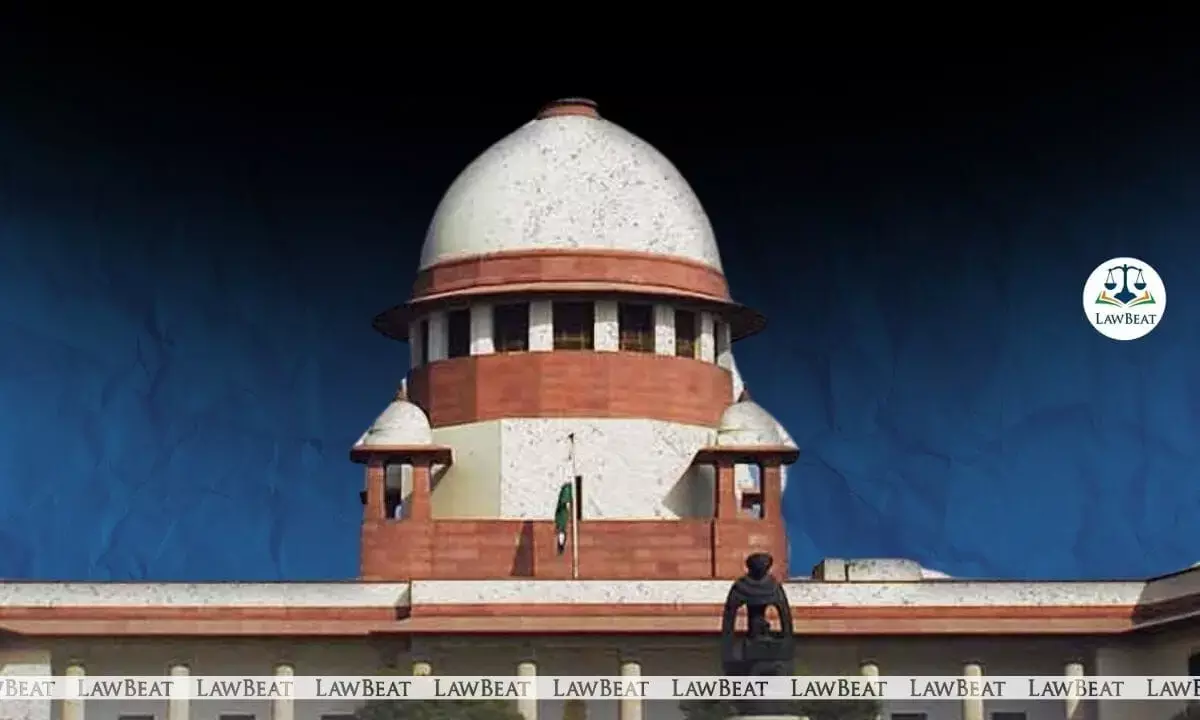Criminal Complaint Can Be Amended Even After Cognizance: SC

The Supreme Court on July 25, 2025, held that an amendment to a complaint filed under Section 200 of the Criminal Procedure Code can be allowed even after the cognizance has been taken and evidence in the case is incomplete.
A bench of Justices B V Nagarathna and K V Vishwanathan said, it is fallacious to contend that in no circumstance can amendments to complaints be allowed after cognizance is taken.
"The test of ‘prejudice to the accused’ is the cardinal factor that needs to be borne in mind," the bench emphasized.
Court allowed an appeal filed by Bansal Milk Chilling Centre against the Punjab and Haryana High Court's order which set aside the trial court's order permitting the appellant to amend its complaint.
The appellant, on April 08, 2022, filed a complaint under Section 138 of the NI Act, against the respondents with regard to dishonour of three cheques to the tune of Rs 14 lakh for purchase of 'desi ghee'.
Summons was issued to the respondents and at the stage when the complainant was yet to be cross-examined, an amendment application to amend the complaint was moved by the appellant. The appellant contended that due to a typographical mistake it had been pleaded that the respondents had been purchasing Desi Ghee (milk products) while it should have been that the respondents were purchasing “milk”.
Respondents opposed the plea, contending no amendment was permissible after cognizance is taken and that the amendment sought, changed the nature of the complaint.
By its order on September 02, 2023, the trial court allowed the application, holding that since the complainant was yet to be cross-examined, no prejudice would be caused to the accused respondents. It also held that the amendment was in the nature of a typographical error, moved at an initial stage of the case.
In its application filed before the high court under Section 482 CrPC, respondents contended the amendment was not a typographical error since even in the legal notice that preceded the filing of the complaint, what was mentioned was “Desi Ghee (milk products)”. It further argued that the amendment is an attempt to avoid liability under the Goods and Services Tax Act, 2017.
Allowing the plea, the high court held that the amendment sought was not in the nature of a typographical error, but it had a wider impact upon the entire matter in dispute and, therefore, it changed the nature of the complaint. It also found merit in the contention of the respondents that the amendment was sought, as no GST was leviable on milk.
Examining the appeal, the bench said, "Procedure, it is said, is only a handmaiden and not a mistress of justice. However, the said adage has been followed only in the breach in this case. A simple issue of an amendment to a complaint has held up a trial under Section 138 of the Negotiable Instruments Act for the last nearly two years."
Citing S.R. Sukumar v. S. Sunaad Raghuram (2015) and Kunapareddy alias Nookala Shanka Balaji vs. Kunapareddy Swarna Kumari and Another (2024), the beach pointed out, it has been held that even in criminal cases governed by the Code, court is not powerless and may allow amendments in appropriate cases.
Referring to Section 2(d) of the Code of Criminal Procedure, 1973 [Section 2(1)(h) of the Bharatiya Nagarik Suraksha Sanhita, 2023], the bench pointed out, it would be seen ordinarily, a complaint could even be oral.
However, the court added, Section 142 of the NI Act states that to take cognizance of any offence punishable under Section 138, a written complaint is mandatory.
"Unless expressly prescribed, if to set a criminal case in motion ordinarily an oral complaint would be sufficient, any question about amendment of a written complaint should be considered by giving the widest latitude. However, as was rightly pointed out in S.R. Sukumar, it should be ensured that no prejudice should be caused to the accused," the bench said.
Having perused the complaint and the application, the bench noted, the amendment was moved at a stage when after summons being issued to the respondents, the chief examination of the complainant had concluded and when cross-examination was awaited.
The amendment made was also only with regard to the products supplied. According to the complainant, while what was supplied was “milk”, by an inadvertent error “Desi Ghee (milk products)” was mentioned. The error which occurred in the legal notice was carried in the complaint also.
''On the facts of the present case and considering the stage of the trial, we find that absolutely no prejudice would be caused to the accused/respondents. The actual facts will have to be thrashed out at the trial. As to what impact the amendment will have on the existence of debt or other liability is for the Trial Court to decide based on the evidence. It was a curable irregularity which the Trial Court rightly addressed by allowing the amendment,'' the bench said.
Court held that it could not be said that by allowing the amendment at a stage when the evidence of the complainant was incomplete, failure of justice would occasion.
"The High Court completely mis-directed itself in delving into the aspects of leviability of GST which would be the concern of the appropriate authorities under the relevant statute. It could also not be said that the amendment altered the nature and character of the complaint,'' the bench said.
Court set aside the high court order and restored the trial court order. It directed the trial court to proceed expeditiously, giving the parties liberty to apply for recall of witnesses already examined.
Case Title: Bansal Milk Chilling Centre Vs Rana Milk Food Private Ltd & Anr
Judgment Date: July 25, 2025
Bench: Justices B V Nagarathna and K V Vishwanathan
